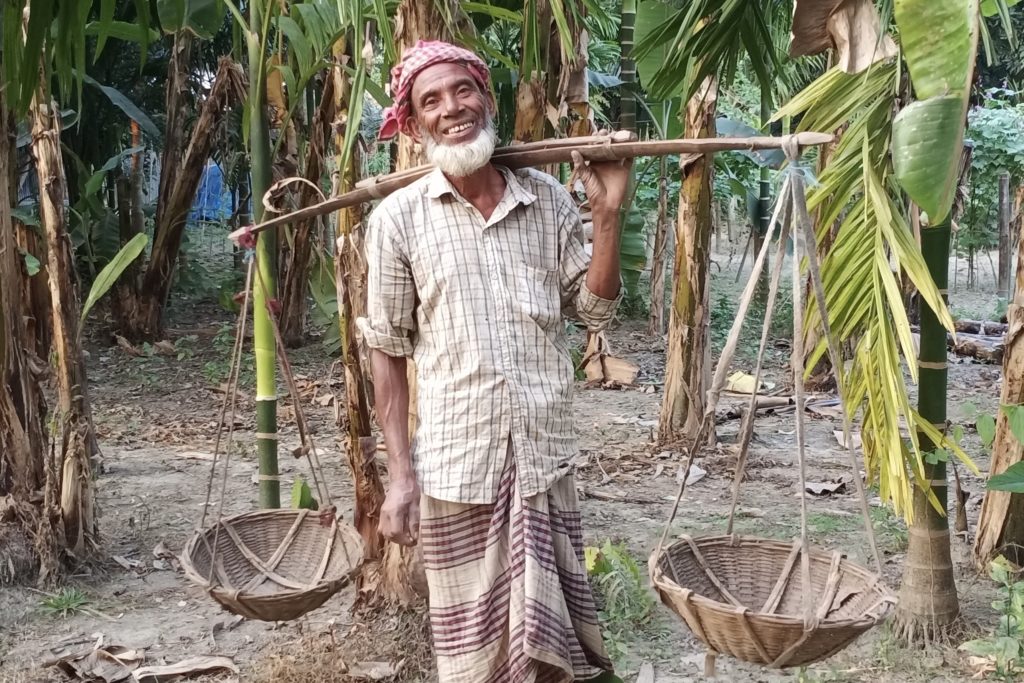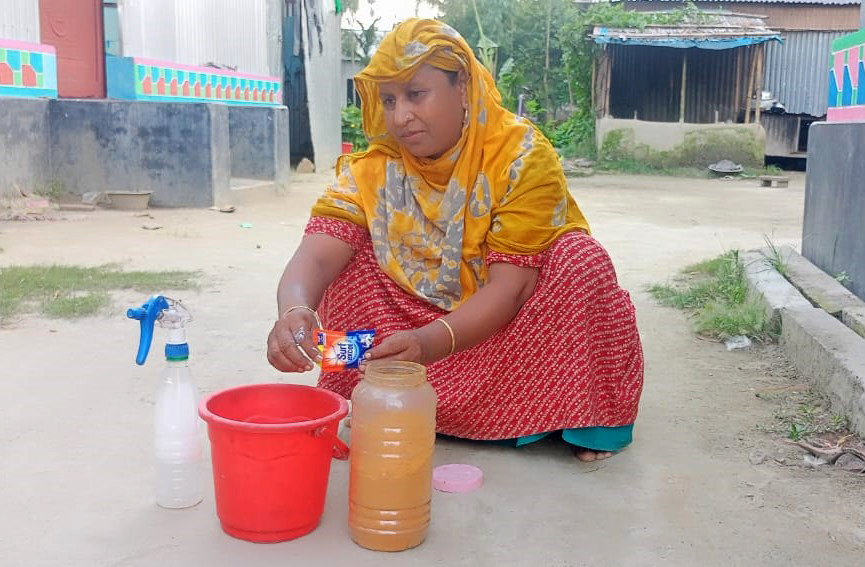 Bangladesh Dewanganj
Bangladesh Dewanganj
$60,251 needed of $80,000

Implementing Organization
World Renew
Program Summary
This nutrition-focused food security program is designed to build the capacity of farmers and their families under the leadership of a People’s Institution named “Rangdhanu Society”. This People’s Institution was formed a few years ago under the Integrated Community Development Program that was funded by World Renew and implemented by local partner PARI.
This program helps participants to identify their strengths, weaknesses, opportunities and challenges and prepares them to practice sustainable agriculture methods to ensure food security throughout the year. The program is forming Agriculture Forums under the leadership of the People’s Institution, and building their capacities to network with the agriculture and livestock offices of the local government. This allows the Agriculture Forums to have access to available resources such as training and technical support and to build a functional relationship with the local government.
Through training and workshops, the program is equiping the Agriculture Forums with agriculture techniques such as pile composting, worm composting, and the preparation of herbal pesticides to minimize the use of chemical substances, leading to increases in production and income.
This program also prioritizes the inclusion of vulnerable groups through the People’s Institutions and Agriculture Forums, including women, single mothers and people with disabilities, so that they can also have access to the agricultural activities promoted by the program, including production, marketing and decision making at family and community level. It is changing their roles from being dependent to becoming active participants in ensuring food security.
After the COVID-19 pandemic, local inhabitants are still facing challenges in maintaining a healthy life style, due to the shortage of nutritious foods and the lack of job opportunities. This program is working to build the resilience of the target communities by changing the existing social system and transforming their lives. The program aims to equip communities to regain their strength and ability to cope with crisis by reducing the gaps created by COVID-19.
The program is being implemented in three unions; Chukaibari, Chinaduli and Dewanganj under Dewanganj Upazila in Jamalpur District of Bangladesh.
Success Stories

Low-Cost Organic Pesticides Finally Bring Success
Monira and her large household are better off financially and finally getting some delicious, homegrown, organic vegetables in their diet. And all because Monira had the good fortune to meet a person who invited her to attend a weekly meeting of a women’s group under the auspices of local partner Participatory Action for Rural Innovation (PARI).
While her husband and son work as day laborers, Monira, like most village women, cultivates a kitchen garden using traditional methods. Though she’d long tried raising a wide variety of vegetables including red amaranth, green beans and pumpkins, she was rarely successful because of insect attacks and fungal infections. Even though she knew using an excess of chemical fertilizers and pesticides could be hazardous to human and environmental health, she didn’t know what else to do.
After learning about the goals and objectives of the women’s group, she felt optimistic enough to join. As a member she enjoyed the social aspect of the meetings, and began receiving training on organic agriculture. She improved her knowledge of sustainable practices in animal husbandry and learned a lot about the principles of sound nutrition. Inspired by the organic farming lessons, she asked a PARI volunteer to teach her how to make organic pesticides and fungicides. She quickly got the hang of it and started to make them on her own, applying them to what she was growing.
In just a few days, she observed that the infestations of insects and fungi in her garden had decreased. Soon after, she was picking healthy vegetables and, for the first time in a long time, she got a good harvest. It didn’t take long for neighbor women to see her results and ask what she was doing differently. She encouraged them to make their own organic products. Now three of the women are regularly using them and also experiencing better outcomes.
Monira says, “Since I learned how to make and apply organic pesticides and fungicides, my family has benefited a lot. My production costs are lower yet my yields have increased. I also credit all the good practices I’ve learned about farming in general. Besides being able to give my family more wholesome food, I am benefiting financially since people are very interested in buying my beautiful, healthy produce. I am thankful to PARI and other supporters for bringing me into this initiative.”
Bangladesh Dewanganj Program
Led by World Renew and Local Partner Participatory Action or Rural Innovation (PARI)
